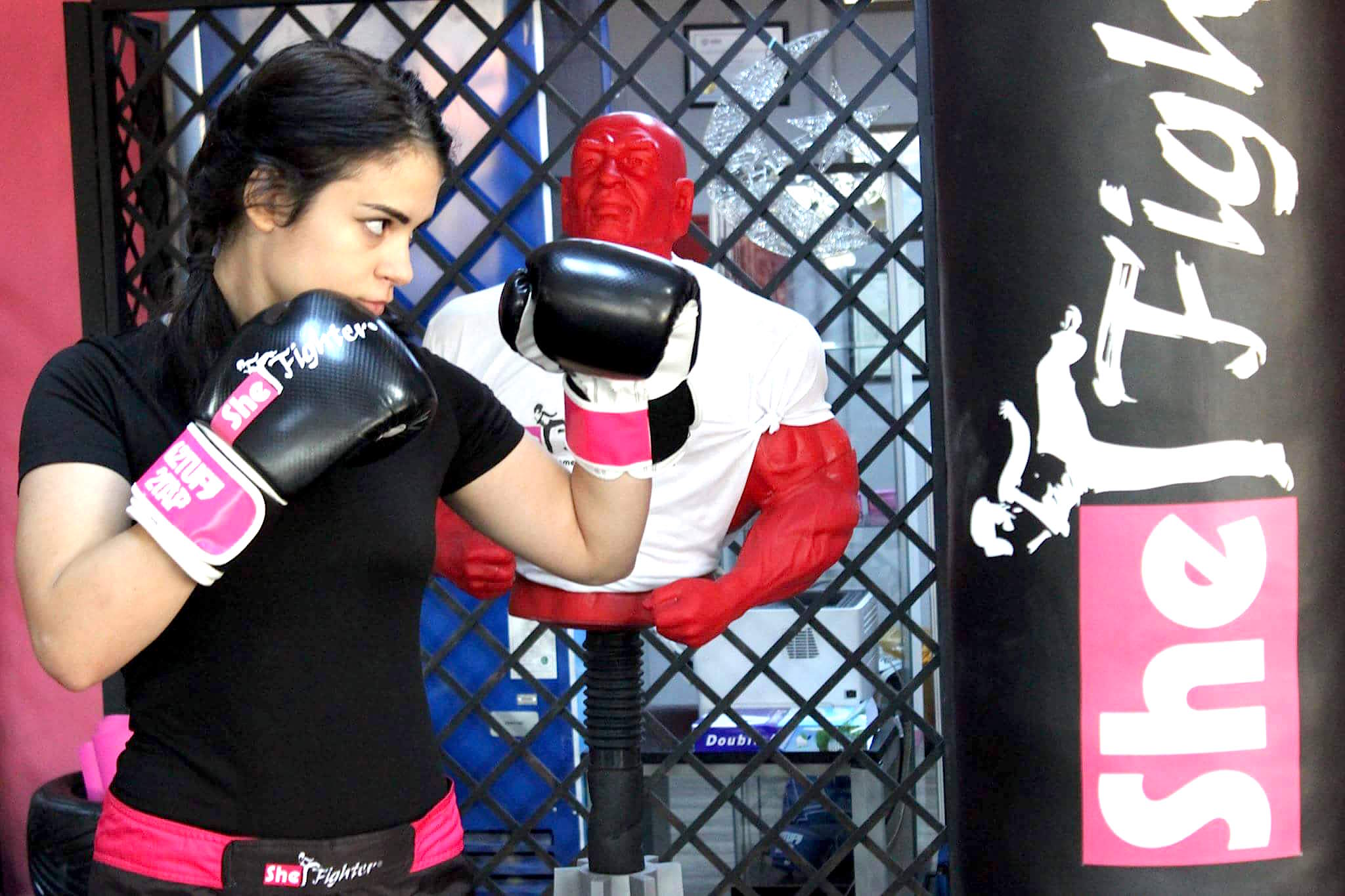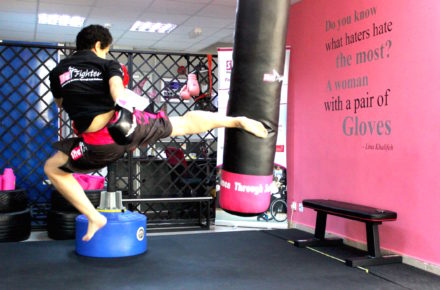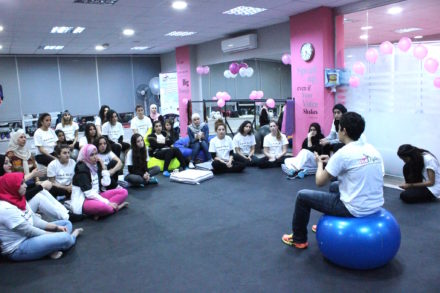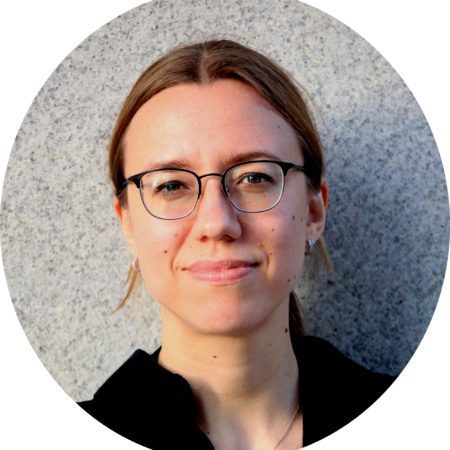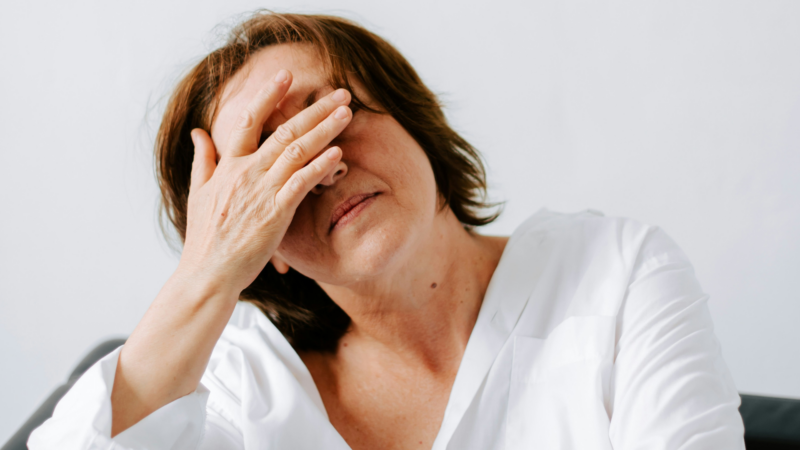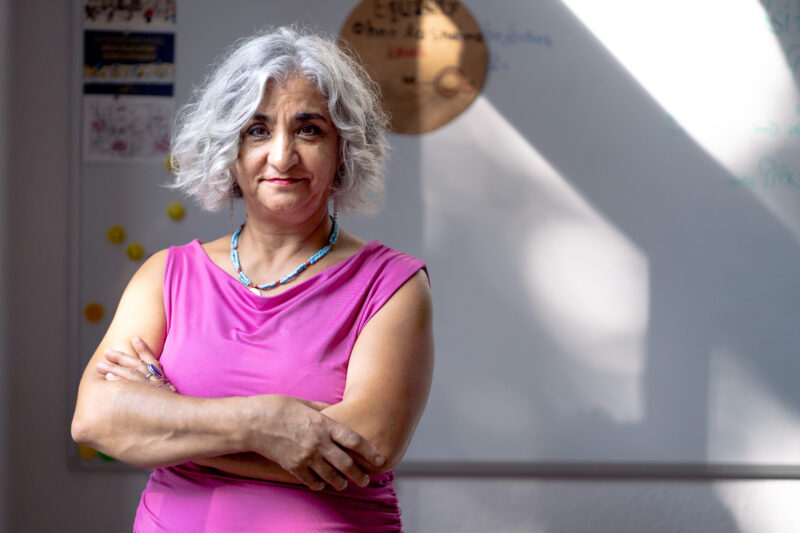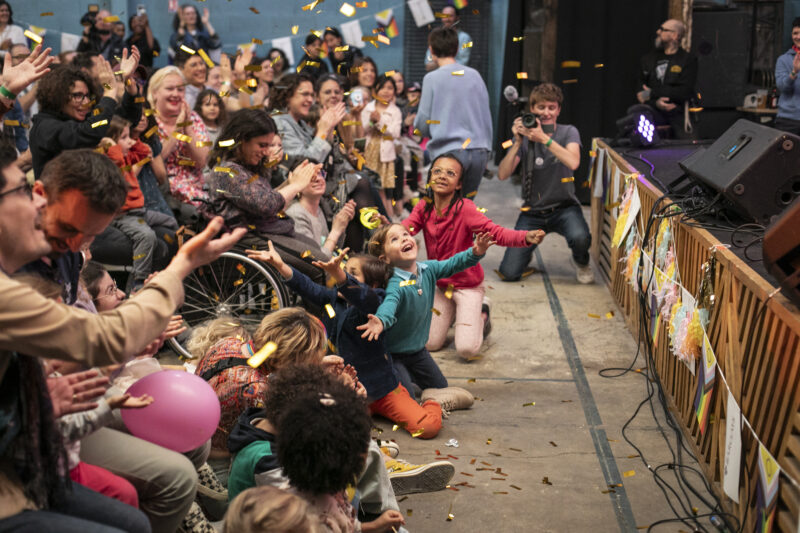Lina Khalifeh founded Jordan’s first self-defense studio for women. First and foremost, she teaches martial arts courses, but also offers discussion-enriched seminars to teach women to stand up for their rights with words and, when necessary, their fists.
By Mareike Enghusen, Amman
Batoul chuckles at the memory of when she landed a jab on that boy: “This is how I got him,” she says with a glint in her eyes. She bends her left arm and thrusts her elbow into the air. “I love this move. I have always wanted to try it out. I was so happy!”
Batoul Muhannad is 21 years old. She is petite with long black hair and has a light complexion. She doesn’t look like someone who would enjoy jabbing her elbow into a strange man’s face. It is likely that that boy thought the same. He had been stalking her for a whole week. Every day when she would walk her little sister to school in the morning, the boy would pass by the two girls on the corner and follow them the rest of the way to the school. One day, Batoul had just said goodbye to her sister when the boy decided to push his luck. With the backing of a few friends, all of which were around 16 or 17 years old, he came straight at Batoul until he was only centimeters away. “I didn’t know if he was going to grab me or push me, but I just automatically reacted and dealt him one,” laughs Batoul in amusement. “He immediately took off without looking back once.”
Batoul tells this story one morning in Amman, the capital of Jordan. She sits on the upper floor of a small coffee shop which offers a variety of lattes and cappuccinos resembling a typical Starbucks –– a rather odd assortment for Jordan. The country is known for drinking exclusively a traditional thick, dark, and sweet coffee. Then again, Batoul Muhannad is also a bit unusual in Jordan for a few reasons: from appearances, she doesn’t wear a headscarf like most women, and from beliefs, she is rebelling against the prevailing social norms of her country.
The side job that changed her life
Batoul Muhannad wasn’t always like this. Just a few years earlier she didn’t feel safe being out in public and had difficulties making decisions. Overall, she was more of a timid girl. “I was one of those people who was too shy to call a taxi,” she remembers.
That all changed when she came across a job posting. She was 19 years old at the time, had just started her studies in an English major program and was looking for a part-time job. A sports gym had posted on Facebook that they were looking for a receptionist. She applied for the position and was hired.
This place was not what one would expect from a typical fitness studio. It was the first institution in the entire country to train women in self-defense and martial arts with a rather fitting name: “SheFighter”.
Batoul liked the idea of the studio, but didn’t see herself enrolling in a course. “I was a little lazy and content to just sit at the reception desk. But because I spent so much time there, I could watch the people. I saw women that would leave the studio completely different to when they walked in. Their posture changed and sometimes also their clothes. That fascinated me,” she says.
The founder and director of “SheFighter” is Lina Khalifeh. She encouraged Batoul to try out a few courses saying something along the lines of: “You have a really good punch and your aim is good. Wouldn’t you like to take an instructor course?”
Unlike many other young women who trained at “SheFighter”, Batoul comes from a liberal family. Her parents did not object to her new hobby. It quickly became apparent that Batoul was exceptionally talented in kickboxing. That is all it took for her to leave her position at the reception and begin training other women to kickbox. She has become so good that she now fights against men. Her next goal is to participate in an international tournament in Abu Dhabi.
Kickboxing is not merely a hobby for Batoul Muhannad. It changed how she proceeded through life. When puberty hit and her body started to change from that of a child to a woman, men would stare her down on the streets, cat-calling her with filthy comments, whistling and making obscene gestures. “It was disgusting,” she remembers. “I would wear extra-wide clothes to hide my body.”
Harassment is everyday life for women
For women in Jordan, sexual harassment, mostly verbal and in rare cases also physical, is part of everyday life. Ever since she started training in self-defense and martial arts, Batoul says that her “personal harassment rate” has dropped 80 percent. “Through my demeanor, people can see that they shouldn’t mess with me,” laughs Batoul, visibly pleased.
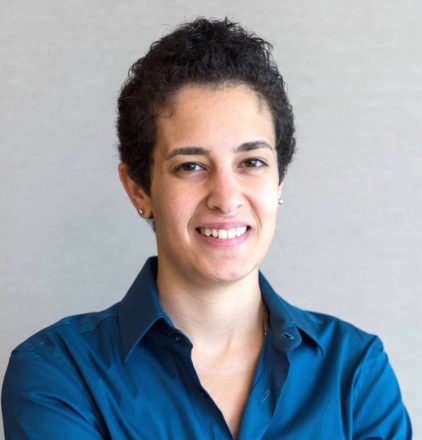
This is the effect that Lina Khalifeh is aiming for when she speaks of empowerment. Lina, the 32-year-old Jordanian woman who wears her hair short, founded “SheFighter” in 2012. She has trained in martial arts for years, including taekwondo, boxing, kickboxing and kung fu. The idea to give back what she learned came to her during her studies in a French major program when a friend of hers came to campus with a black eye. Lina says that the father and brother of her friend had hit her for no apparent reason: “They feel dominant and want to keep women under control. There is so much violence against women in this country but no one talks about it. That’s why I decided to teach women to defend for themselves.”
In getting started, Lina offered courses and workshops in various studios before founding her own. The self-defense method she teaches is of her own creation –– a combination of classic self-defense methods, taekwondo and boxing. In addition to these courses, she also offers seminars and workshops that have psychosocial topics such as gender roles or sexual harassment. She offers her courses in schools, speaks at conferences, organizes workshops in rural areas and in refugee camps.
Lina is convinced: “Self-defense is one of the best methods for women to develop their confidence. They can react if someone attacks them. Hopefully that won’t happen, but we can’t just assume that the whole world will be peaceful. Those who train are prepared for the worst.”
In the beginning, she was met with heavy resistance from both men and women. Many men wanted to keep their control over their women or they thought that martial arts are only for men. In time, Lina realized that the women were also contributing to the problem: “I tell them that they should fight the male-dominated system in our society. But to do that, they have to leave the comfort zone in which they were raised. That’s difficult. Many women are against that.”
She herself started rebelling quite early against the rigid gender roles in Jordanian society –– roles inflicting both men and women. She re-tells the story that when she was only five years old, her father bought a skateboard for her brother and a Barbie for her. “I also want a skateboard,” she complained. Her father dismissed the matter with a joke, but Lina Khalifeh’s sense of gender inequality had been awoken.
It is a challenge to pursue your own way as a woman in lieu of the traditional roles expected of women in a conservative society like Jordan. A mere 18 percent of Jordanian women work outside the home, which is less than Saudi Arabia. Most women marry young, quickly have children and subsequently take on child-rearing and household chores. Lina Khalifeh, however, lives alone, manages her own business and is single which many perceive as improper.
She says that it happens often that men will approach her on the street and offer unsolicited advice such as: “You shouldn’t have short hair, otherwise you won’t find a husband.” In time, she has learned to stay composed. Despite the opposition, she has found an audience for her way of life with more and more participants willing to join her.
Two years ago, she moved into a bigger studio.
Women are more confident thanks to martial arts
Throughout the years, Lina manages about 15 female trainers and has trained even more women that now work in NGOs throughout Jordan. Many of the women who trained at “SheFighter” in Amman belong to the middle class, but Lina Khalifeh also reaches out to other women through aid agencies like “USAid” and “Oxfam”. These agencies cooperate with Lina by offering compensation for courses and workshops for poorer women that live in rural areas and refugee camps. This year she is planning to allocate a license for a “SheFighter” branch in Kuwait and Dubai. She is also currently in talks with German sports organizations. “’SheFighter’ is aimed for all women. We are not interested in names, religions or ethnicity,” she says.
Lina says that she has noticed changes with many of the women who trained under her that go beyond just physical fitness. She says that many of them appear to be more confident when it comes to their men, while others have taken off their headscarves; some were able to defend themselves in more critical situations against an attacker, a situation that could have otherwise destroyed their life.
Batoul Muhannad goes as far as to say that training has opened doors for her that she never before realized existed: “I have become braver and I see many more opportunities for the future,” says the young woman. “Last year, I spent five months in the USA on exchange. It was my first time traveling abroad; the first time I boarded an airplane. I would have never trusted myself before. To that, I have ‘SheFighter’ to thank.”
Originally posted by Deine Korrespondentin
Translated by Catherine Barney

